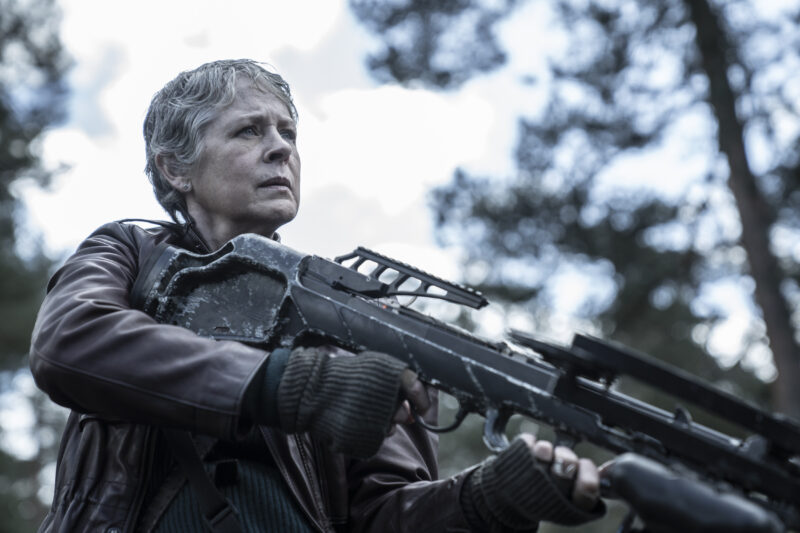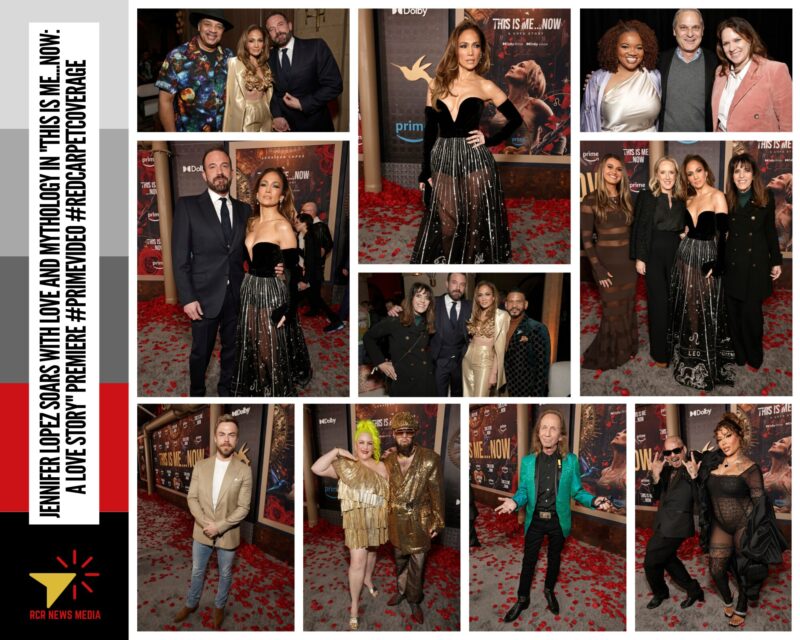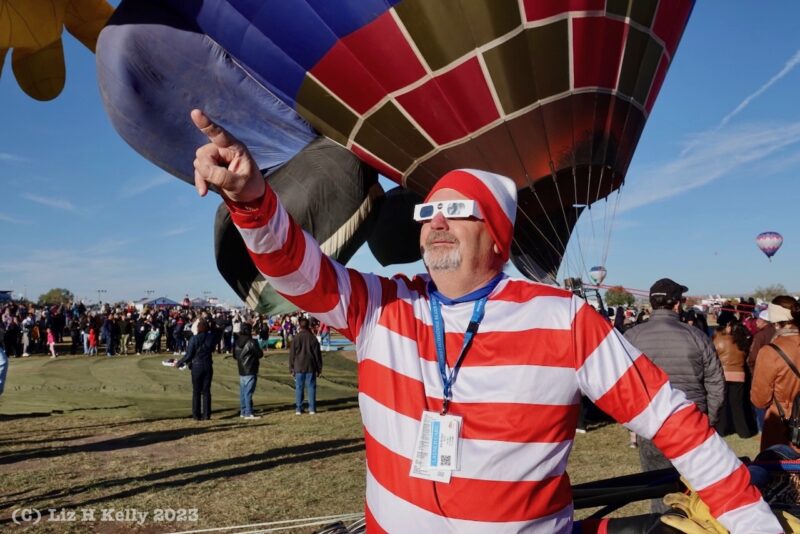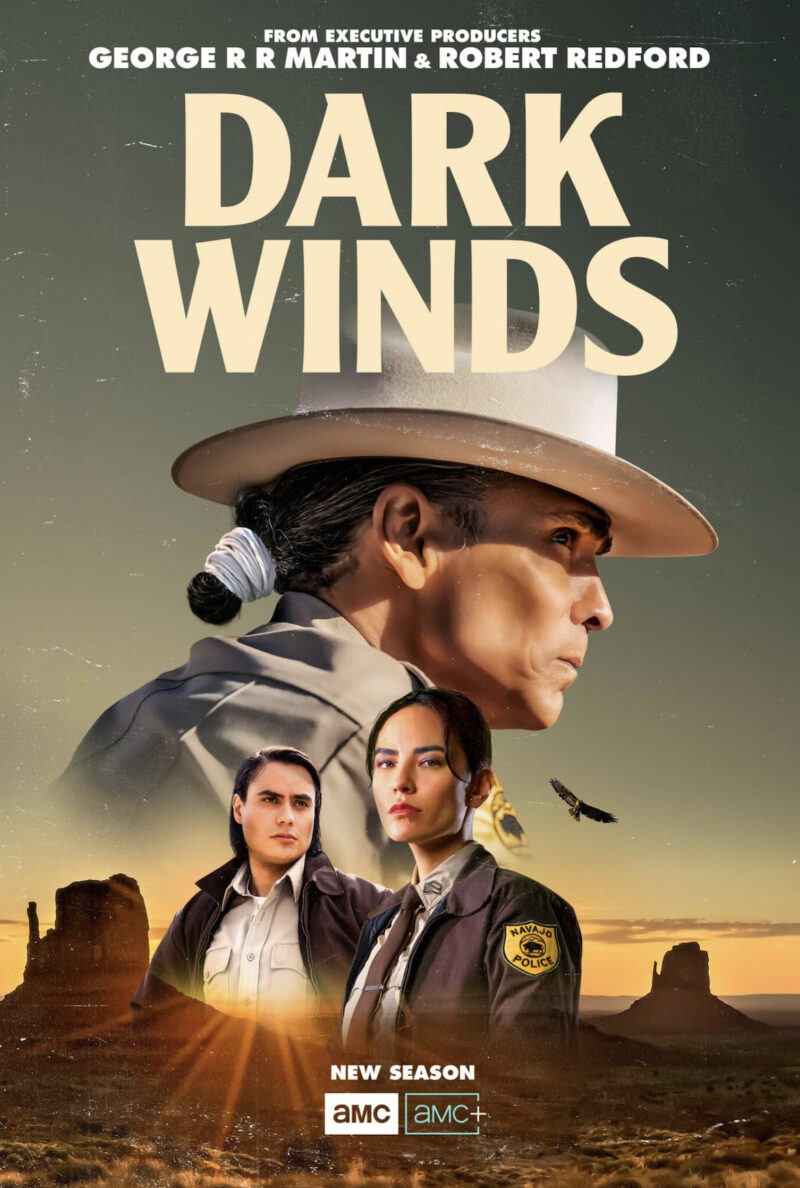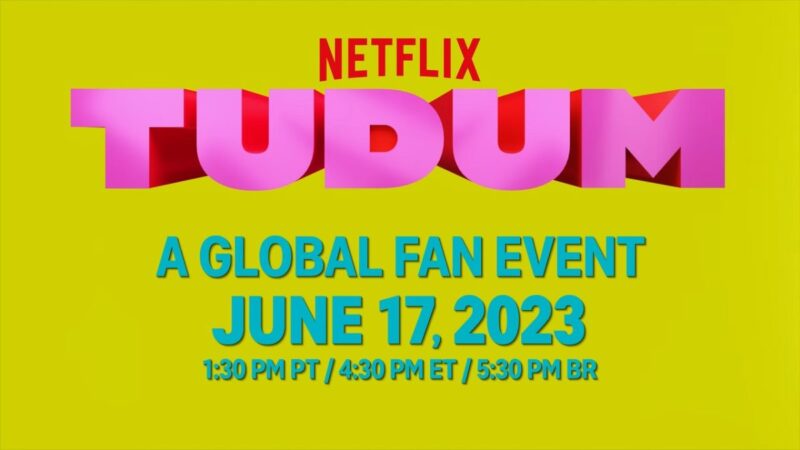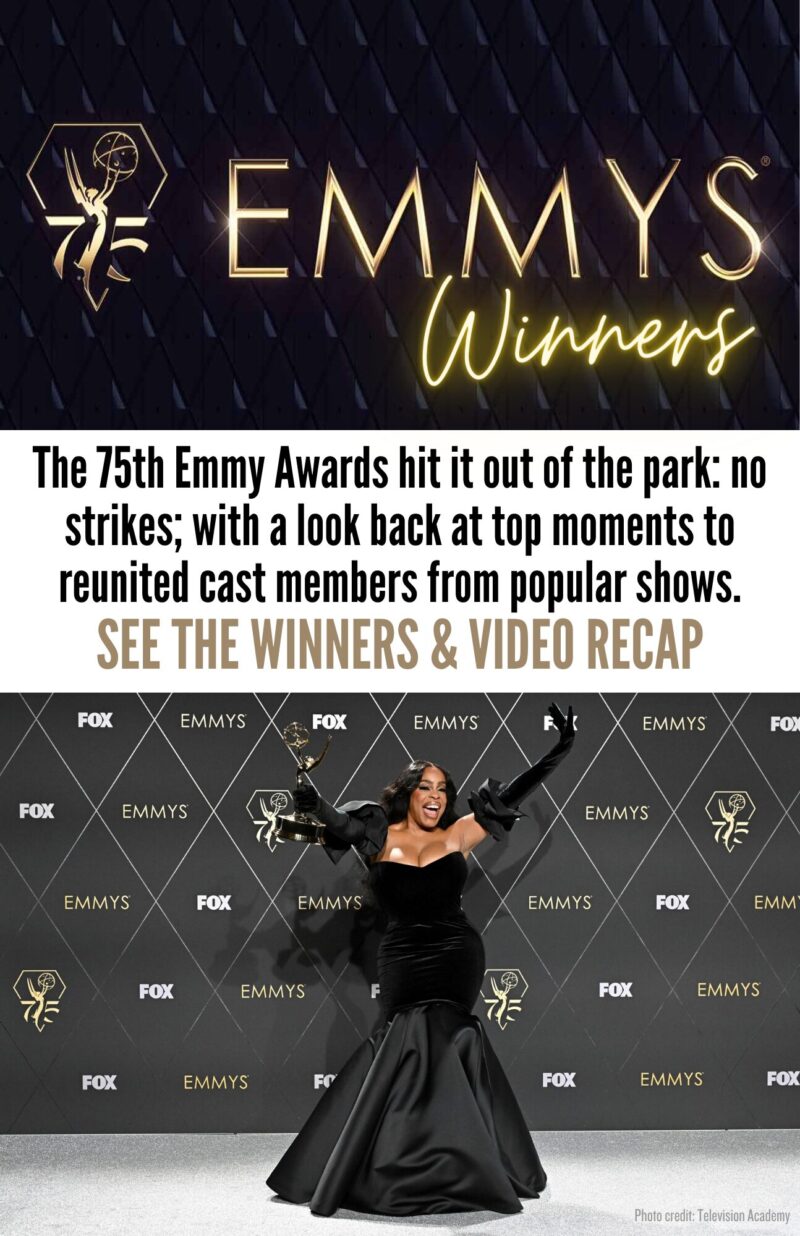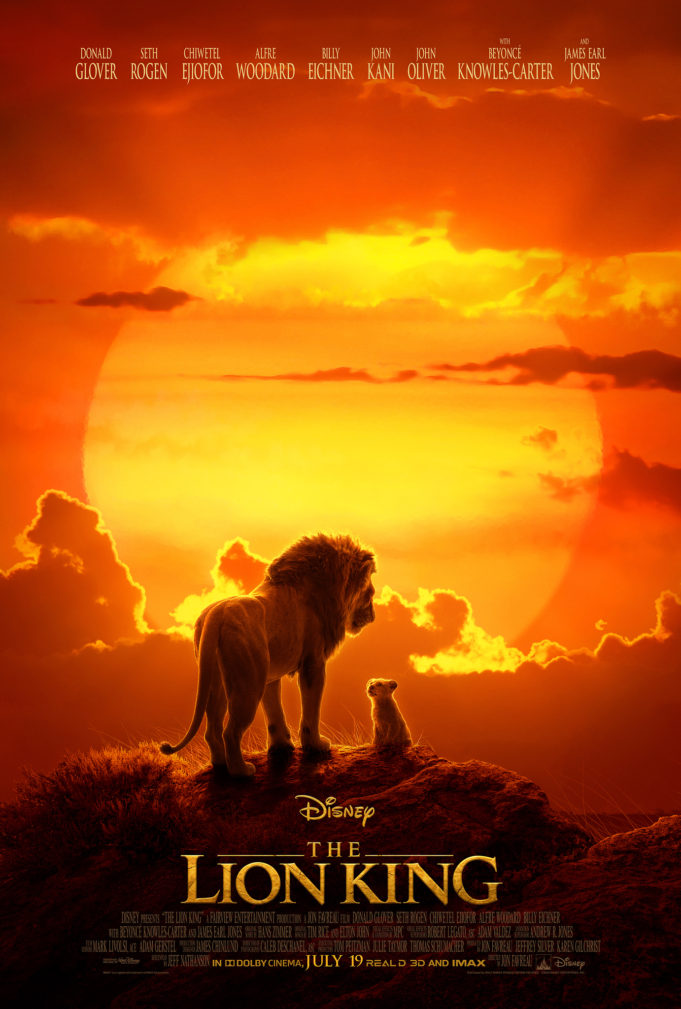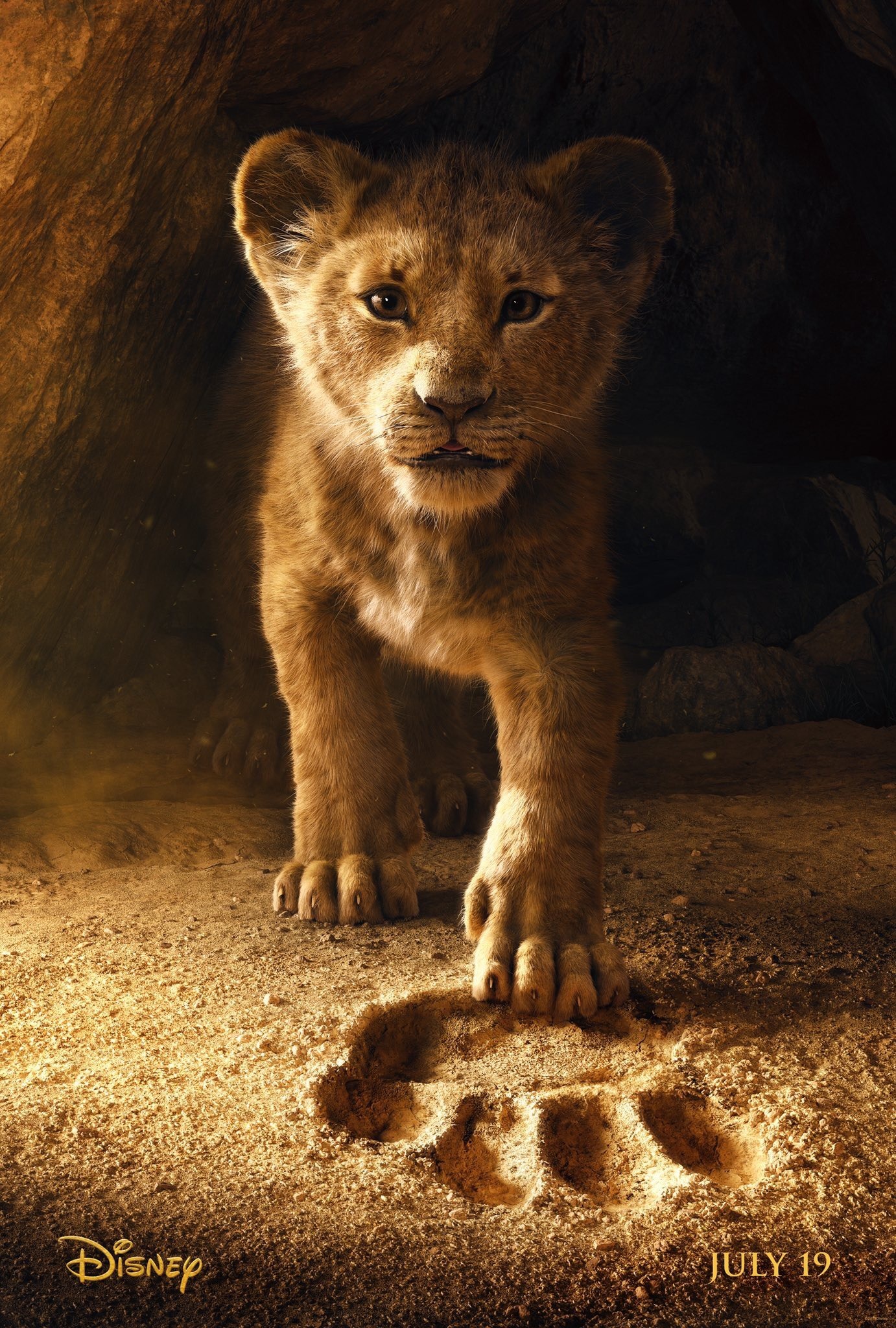The Lion King is a remake of the 1994 Disney classic about Simba, a young cub who must reclaim his birthright from an evil uncle and become king of the Pride Lands. This version is a photoreal CG animated feature directed by Jon Favreau, following up his 2016 CG remake of The Jungle Book. The star-studded cast includes Donald Glover as Simba, Billy Eichner as Timon, Seth Rogen as Pumbaa, Chiwetel Ejiofor as Scar, Alfre Woodard as Sarabi, John Oliver as Zazu, Beyoncé Knowles-Carter as Nala and James Earl Jones reprising his role as Mufasa. Jeff Nathanson adapts the original script from Irene Mecchi, Jonathan Roberts and Linda Woolverton.
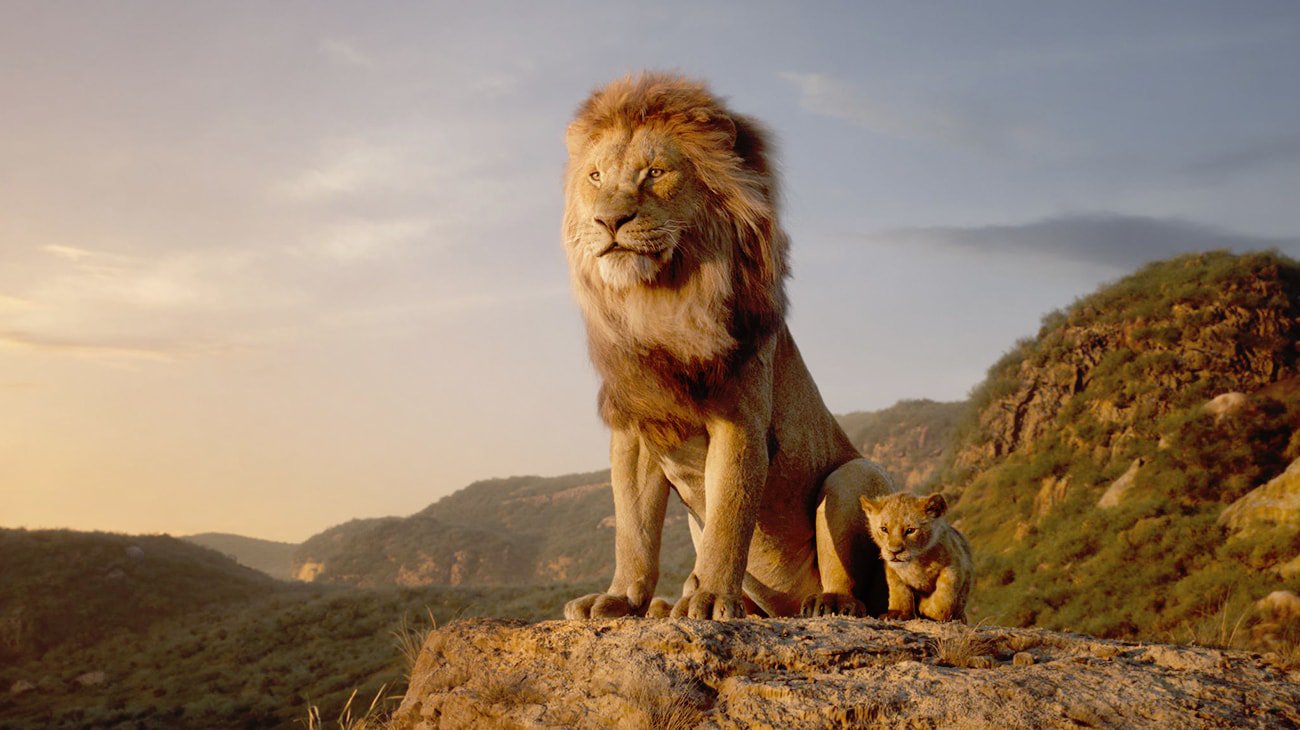
The ’94 animated film was the apex of the Disney Renaissance, a period in which the animation studio rebounded from an era of under-performance. As one of the most beloved and acclaimed films of its ilk, remaking it twenty-five years later was no small feat and to many, ill-advised. However, the end result is a gloriously beautiful and visually stunning film, full of naturalistic splendor and digital dynamism. This new iteration of The Lion King is a loving tribute not just to the original film, but to the field of animation itself and the marriage of technology and art.
James Earl Jones is magnificent in his return to Mufasa, once again commanding regality and strength; the time difference is noticeable, with Jones leaning into the weathered quality of his voice. Donald Glover infuses Simba with the reluctant underdog energy of his Atlanta persona, carrying the torch from JD McCrary’s adorably spunky cub. In particular, McCrary and Shahadi Wright Joseph (Us) as young Nala get things off to a great start. It should be noted that Joseph is also reprising her role as young Nala from The Lion King on Broadway.
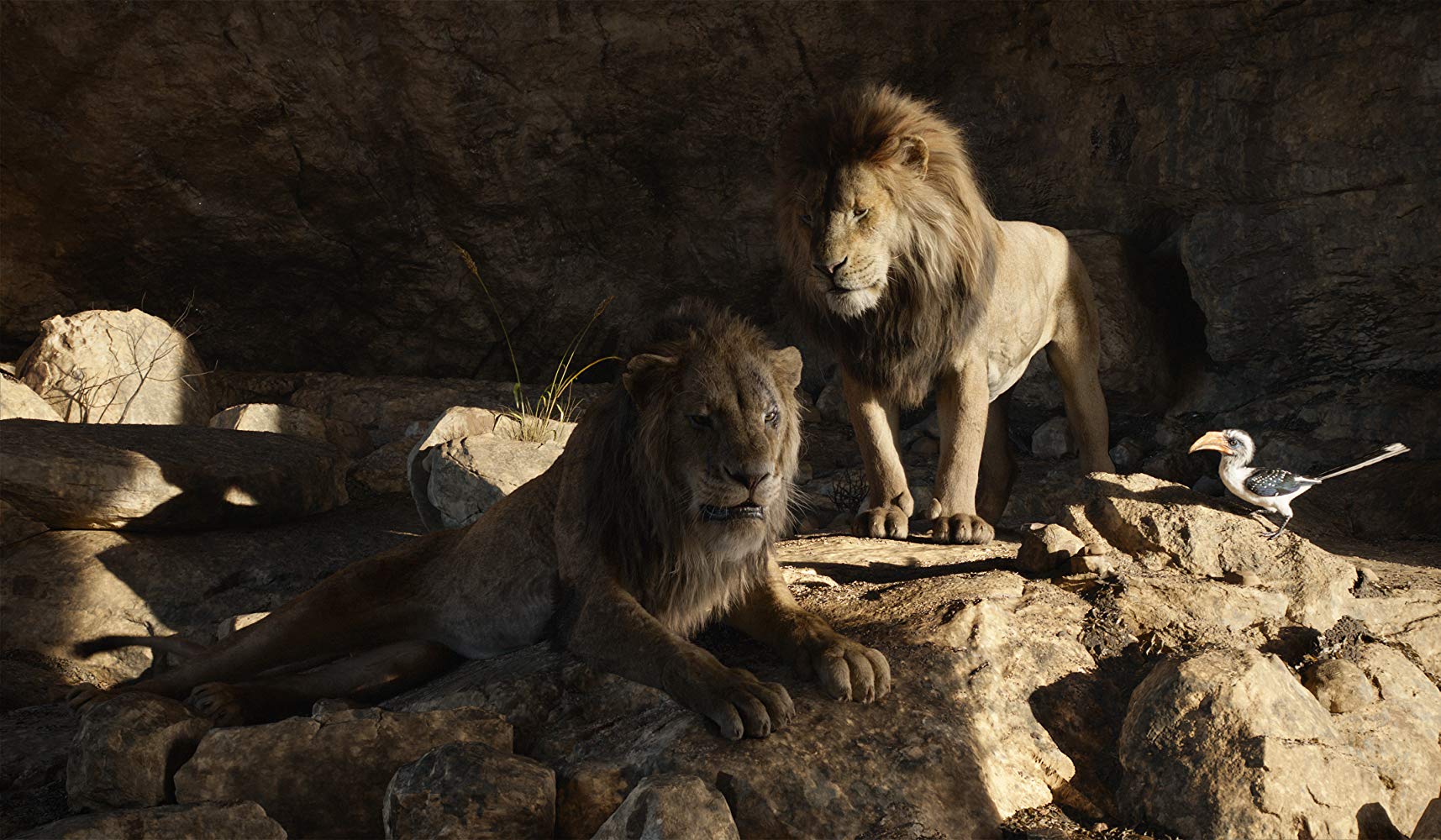
Chiwetel Ejiofor approaches Scar with an insidious nuance that lacks the grandiose theatricality that Jeremy Irons brought to the role, but this being a photoreal animated production, the nuance works. Scar’s twisted intelligence is still ferocious, and seeing his machinations ravage the heart and mind of a young “real-life” cub is somehow more hurtful in this version. How could he do that to this adorable little cub? There is plenty in this new take to remind you why Scar is one of the greatest Disney villains of all time.
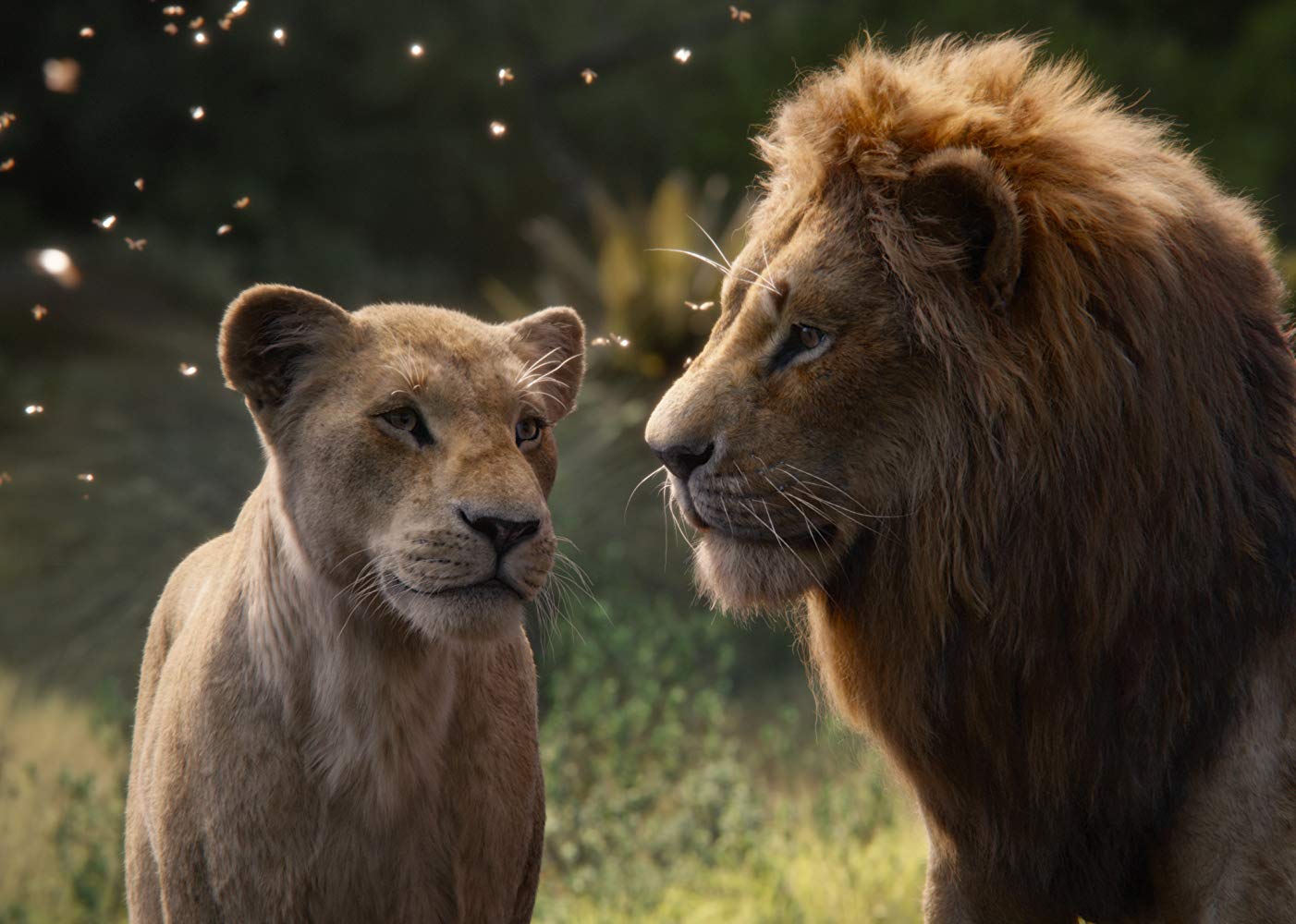
As for Queen Bey, it is a tale of two performances: her vocal acting and her singing. First off, let me say that having one half of Childish Gambino and Beyoncé perform “Can You Feel The Love Tonight?” in full R&B mode (and produced by Pharrell Williams no less) results in probably the world’s first billion-dollar grossing song, as far as box office receipts go. In addition, the new song “Spirit” co-written by Beyoncé is a welcome entry in the litany of Lion King music. Regrettably, Beyoncé’s vocal performance as Nala vacillates between fiery and distant, passionate and flat. It is a sour note in an otherwise fine line-up of talent, no pun intended, and I had hoped that Favreau could’ve gotten a better performance from her.
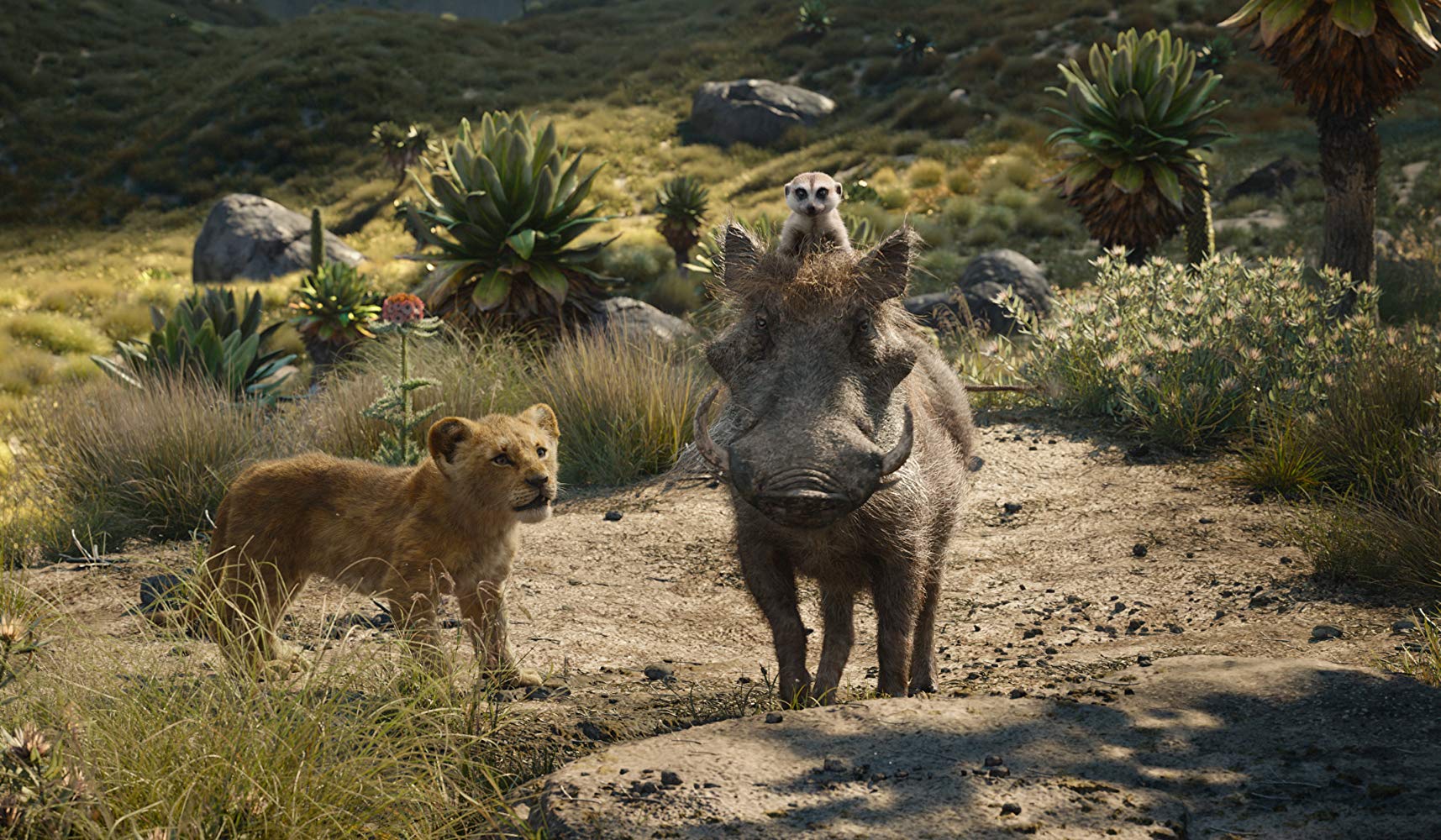
All that being said, Favreau smartly packs the cast not only with legends like Jones and Woodard, but with comedic greats like Rogen, Eichner and Oliver as well. Rogen and Eichner as Timon and Pumbaa deserve special mention with their revitalizing of the carefree duo. After countless specials, an animated series and their own sidequel (The Lion King 1½), Ernie Sabella and Nathan Lane served as the mascots of this franchise for more than a decade and measuring up to them would be a tall order. Rogen and Eichner, both known for being improvisational geniuses, succeed in making Timon and Pumbaa funnier than they’ve ever been.
The hyena trio manages to get some good laughs in with Keegan-Michael Key and Eric Andre, though Florence Kasumba (Black Panther) is much more menacing as Shenzi than Whoopi Goldberg. As regal and majestic as The Lion King is, it’s also a very funny movie with some much-needed laugh out loud bits to leaven the grief of its darkest moments.
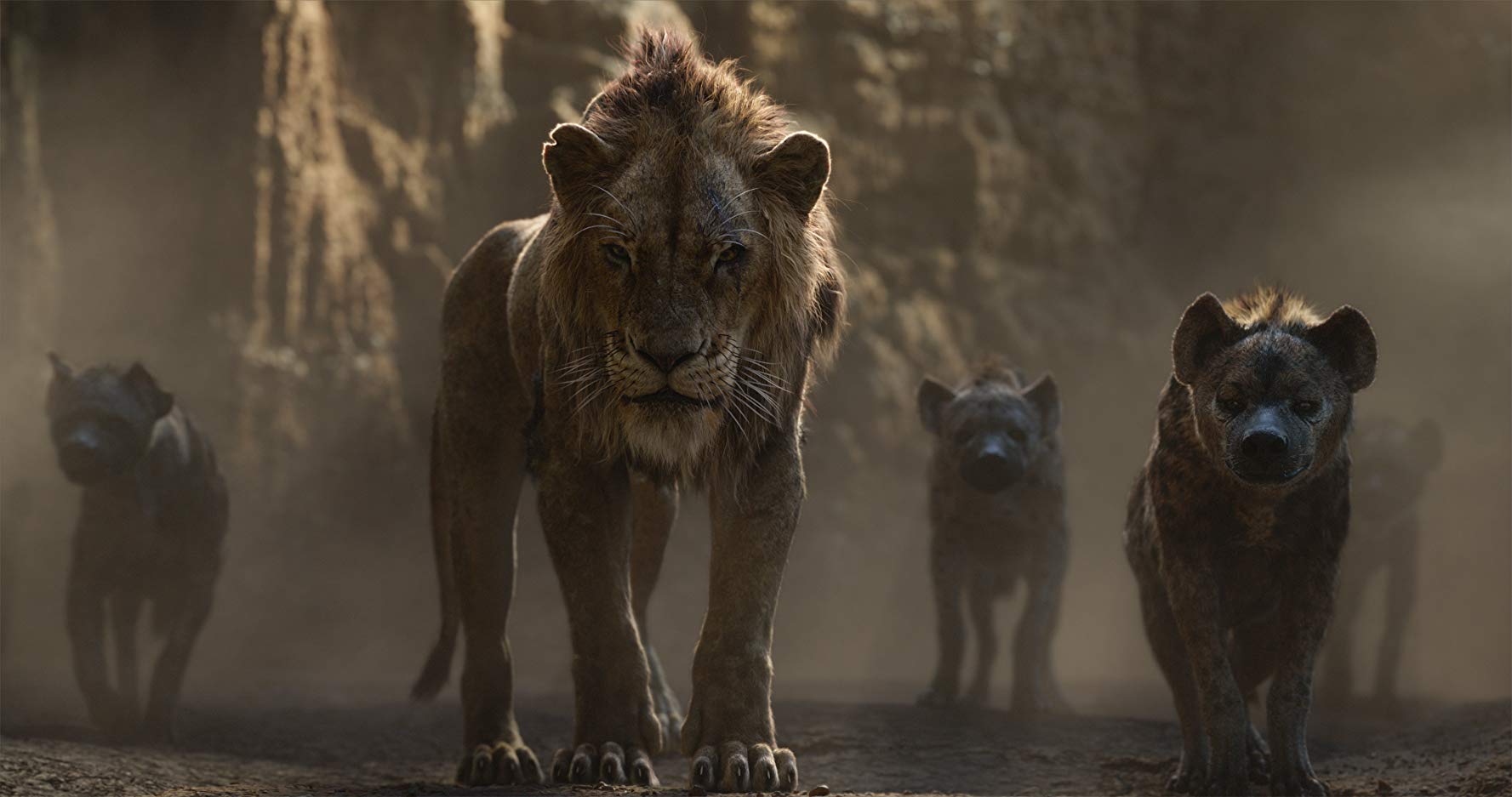
Be it either a stunning lack of ego on the filmmakers’ part, or shrewd business sense or a combination of both, the meat and bones of this film are beat-for-beat, pound-for-pound the same as the animated original. Your mileage may vary but the ‘94 Lion King is one of the most rewatchable films ever made, from start to finish. The thrill of discovery in the remake isn’t in how Favreau and Nathanson evolved or improved on the existing material; they simply can’t. The material is too good.
Instead, what’s most fascinating about the 2019 film is the exercise of adaptation, translation and recontextualization of the animated feature into a photorealistic work of art. It’s the cinematography and simulation of natural light, the framing and blocking, the strides and gallops and stances of the animals, the art of problem solving.
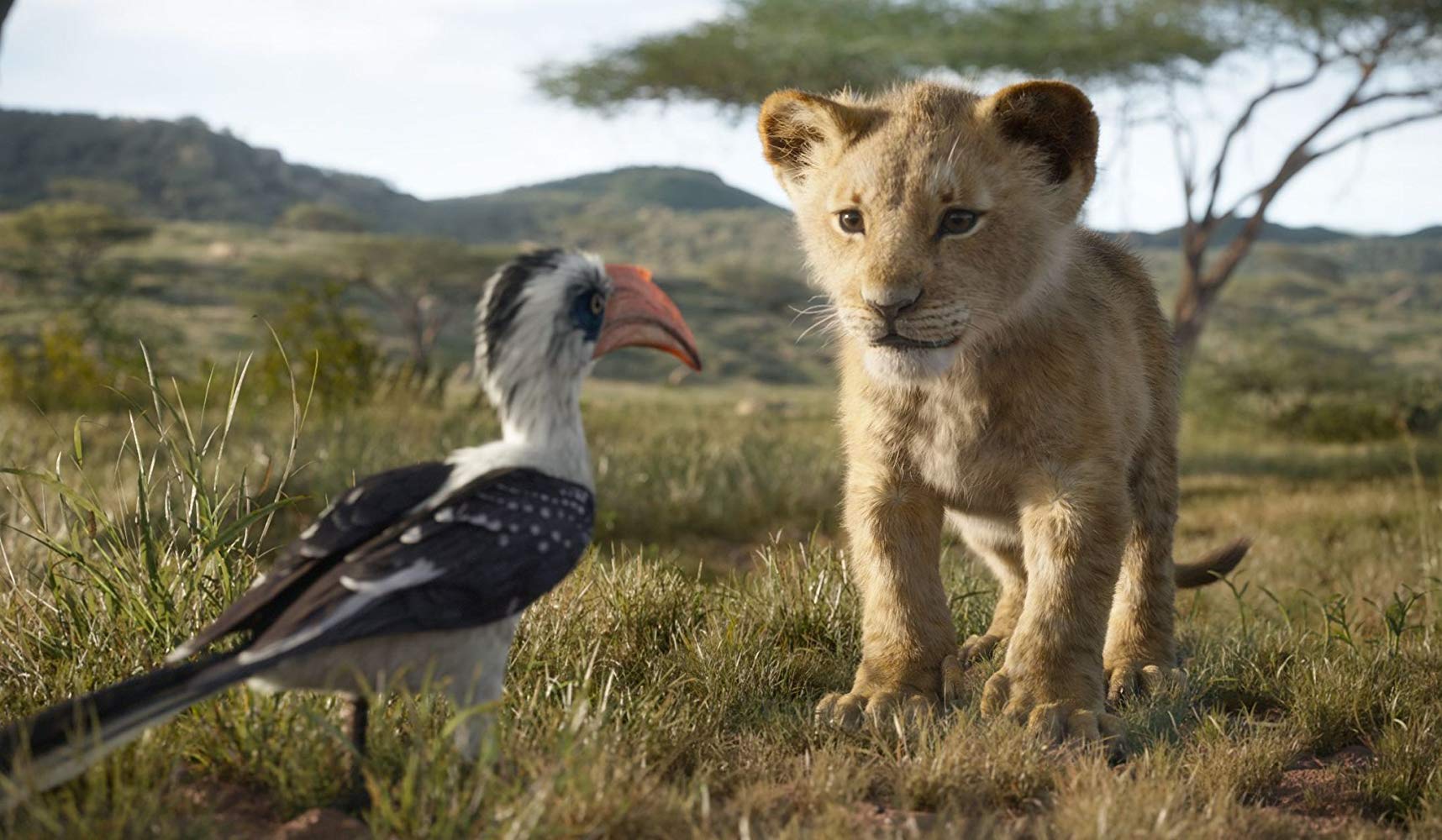
Animation gives us an abstraction that we as humans can then project ourselves onto. The more photoreal a subject gets, the harder that projection becomes as abstraction is replaced with actuality, or in this case, an extremely close approximation thereof. The lions and animals can’t be nearly as expressive as they were in animation so the vocal performances have to compensate, bearing the emotional bulk of the characters with as much assistance from body language, lighting and musical score as possible.
The end result may work for some, and not for others. Because the lions and animals and the African savannah have been reproduced to such exacting detail by the many digital artists on this film, anything incongruent to this level of photorealism – such as human voices coming out of these animals’ mouths – might cause a level of dissonance in certain audience members, bordering on discomfort. This is known as The Uncanny Valley, and digital characters have to cross this valley before being accepted as emotional focal points for the audience.
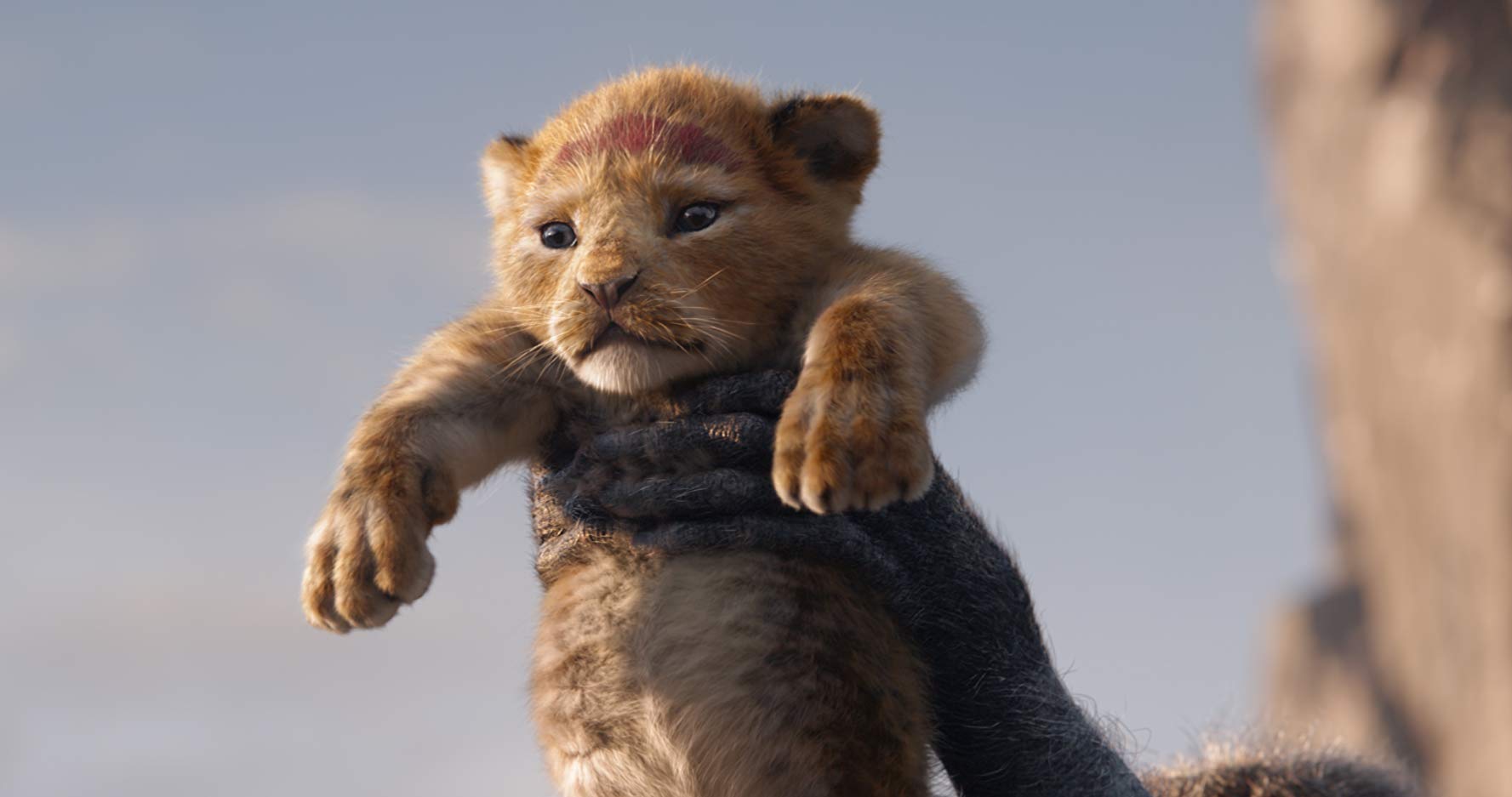
Favreau and his collaborators refined the virtual production methods used in 2016’s The Jungle Book (which at this point should be viewed as a testbed for The Lion King, and the most successful R&D project of all time) and have dealt with crossing the Uncanny Valley before. The issue now is that The Lion King is much more well-known than 1967’s The Jungle Book, and with the remake’s script hewing so closely to the original, down to distinctive lines of dialogue, the differences between the animated and the photoreal stick out even more, because most of the audience already has a memory of how these moments are supposed to look and feel.
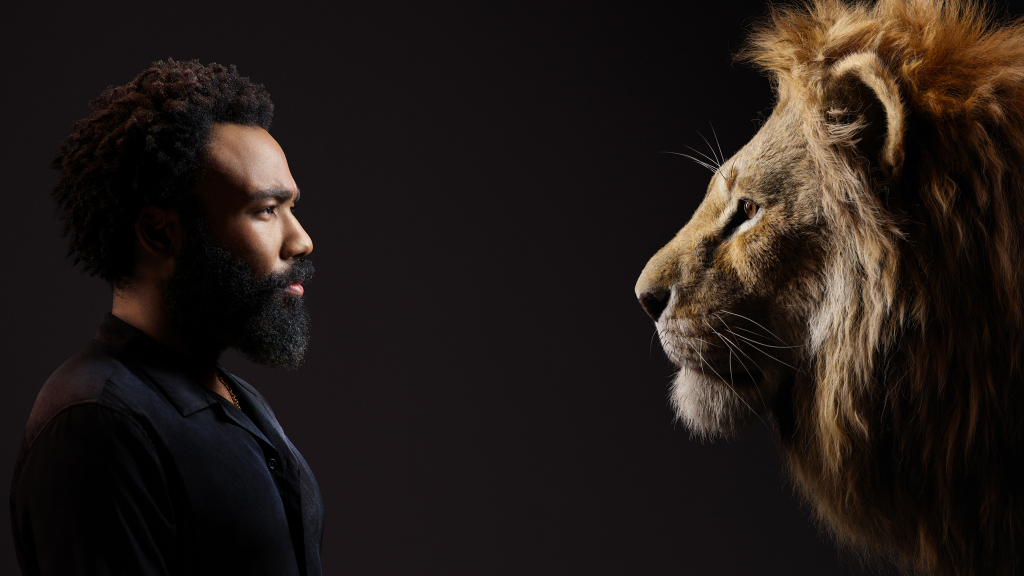
For me personally, the spirit of experimentation and the high detail of digital art outweighed this dissonance heavily. There are however key emotional moments harmed by this dissonance due to the lack of expressiveness in the characters, especially the lions. It is not unsettling, but in rare and crucial points, it is underwhelming. Thankfully, the remake recovers from these moments with aplomb, but the animated original never had such concerns or flaws to worry about.
All of that science and all of that tech wouldn’t amount to a hill of beans without the heart and soul of this franchise: the music. Hans Zimmer returns to adapt his own original score, much in the same vein as Alan Menken did for 2017’s Beauty and the Beast and this year’s Aladdin. Zimmer reconnects with his younger self and embellishes on the themes of the characters and Pride Rock. Elton John and lyricist Tim Rice reunite to contribute the new song “Never Too Late,” along with key contributor Lebo M, and Pharrell Williams (a friend and collaborator of Zimmer’s) lends his Midas touch to producing the beloved songs. Wherever the film might falter, the music picks up the slack, and The Lion King does the best job in honoring and performing its predecessor’s songs than any of the other Disney Renaissance remakes so far.
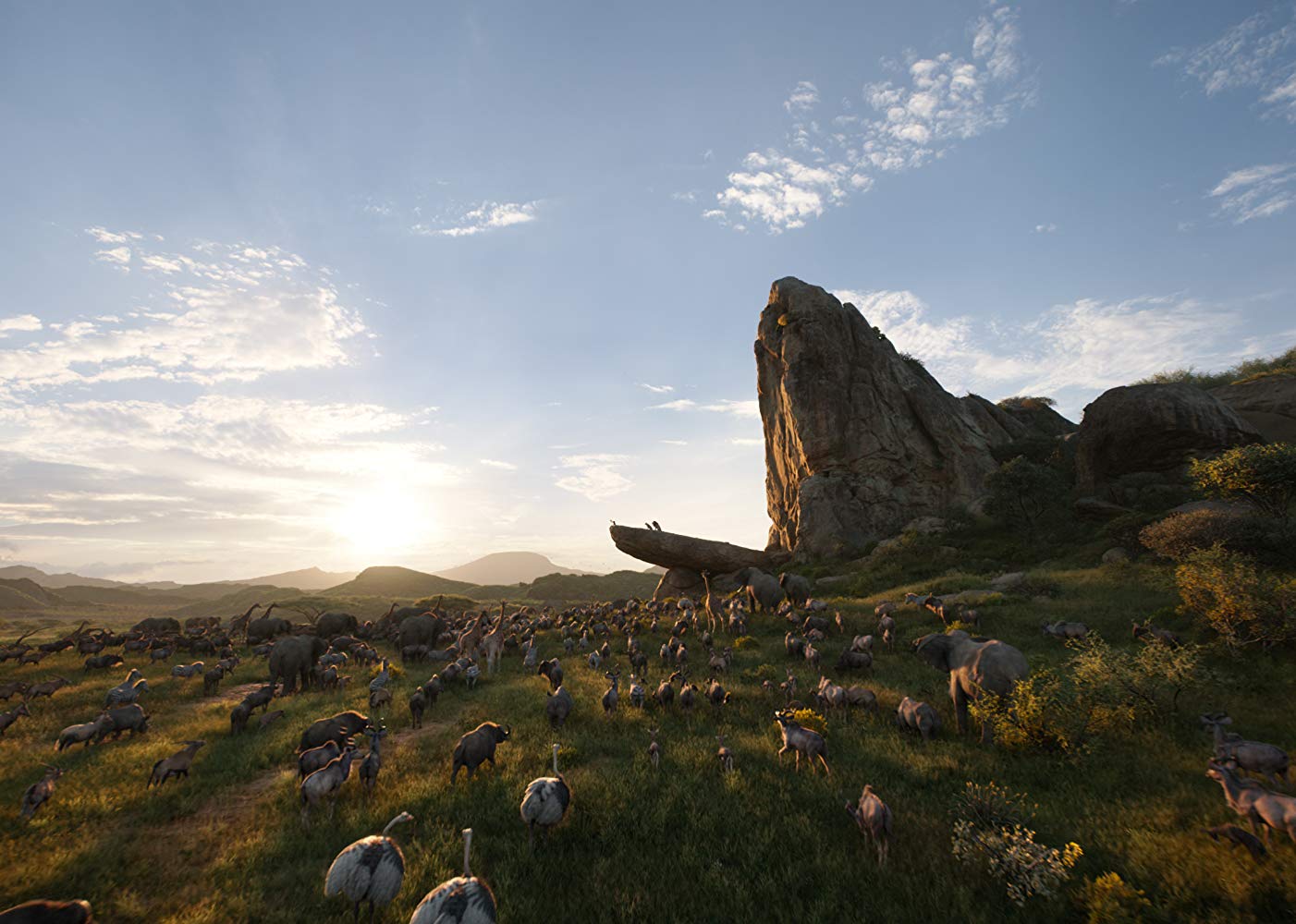
Favreau and his team have chosen a methodology that sought to do the impossible and bring a modern classic to life. Due to insurmountable facets brought about by the choice of photoreal CG virtual production, namely the lack of emotional facial expression, and the near-miscasting of Beyoncé Knowles-Carter, this remake won’t be lauded in the same fashion as the beloved original. Nevertheless, this new version of The Lion King stands as a visual achievement of artistry and passion, filled with humor, pathos and grandeur, inspired by the very best Disney has to offer.
Rating: 4/5 stars ⭐⭐⭐⭐
ABOUT DISNEY’S THE LION KING
“The Lion King” is directed by Jon Favreau (“The Jungle Book,” Marvel Studios’ “Iron Man”) and produced by Favreau, Jeffrey Silver (“Beauty and the Beast,” “Edge of Tomorrow”) and Karen Gilchrist (“The Jungle Book,” “Chef”). Jeff Nathanson (“Catch Me If You Can,” “Pirates of the Caribbean: Dead Men Tell No Tales”) penned the screenplay based on the 1994 screenplay by Irene Mecchi, Jonathan Roberts and Linda Woolverton. Tom Peitzman (co-producer “Kong: Skull Island,” “Alice in Wonderland”), Julie Taymor (director “A Midsummer Night’s Dream,” Broadway’s “The Lion King”) and Thomas Schumacher (“The Lion King,” “Beauty and the Beast”) are executive producers, and John Bartnicki (“The Jungle Book,” “Chef”) is co-producer.
NEW BTS Video!
The award-winning team of artists tapped to bring the African savanna and its animal inhabitants to life includes visual effects supervisor Rob Legato, who conceived the virtual production on “Avatar,” won Academy Awards for his work on “The Jungle Book,” “Hugo” and “Titanic,” and was nominated for an Oscar for his work on “Apollo 13,” and Oscar-winning animation supervisor Andrew R. Jones (“The Jungle Book,” “Avatar,” “World War Z”). MPC Film’s VFX supervisors are Adam Valdez (“The Lord of the Rings: The Fellowship of the Ring,” “The Lord of the Rings: The Two Towers”), who won an Oscar for his work on “The Jungle Book,” and Elliot Newman (“The Jungle Book,” “Fast & Furious: Supercharged”).
Five-time Oscar nominee Caleb Deschanel, ASC (“Jack Reacher,” “The Patriot”), is director of photography, and James Chinlund (“War for the Planet of the Apes,” Marvel’s “The Avengers”) serves as the production designer. Oscar winner Ben Grossman (“Alice in Wonderland,” “Hugo,” “Star Trek Into Darkness”) is virtual production supervisor, and Mark Livolsi, ACE (“The Jungle Book,” “Saving Mr. Banks,” “The Blind Side”), and Adam Gerstel (“Transformers: The Last Knight,” “The Jungle Book”) edited the film.
This film features unforgettable music by an award-winning team, including Oscar- and GRAMMY®-winning superstar Elton John and Oscar- and GRAMMY-winning lyricist Tim Rice, score by Oscar- and GRAMMY-winning composer Hans Zimmer, plus African vocal and choir arrangements by GRAMMY-winning South African producer and composer Lebo M (“Rhythm of the Pride Lands”). Oscar-nominated and GRAMMY-winning singer, songwriter and producer Pharrell Williams (“Hidden Figures”/producer, “Happy”), produced five songs on the soundtrack.
Utilizing pioneering virtual filmmaking techniques to bring some of film’s most treasured characters to life in a whole new way, “The Lion King” roars into theaters on July 19, 2019.
Hashtag: #TheLionKing
Website: https://movies.disney.com/the-lion-king-2019
Facebook: https://www.facebook.com/DisneyTheLionKing
Twitter: https://twitter.com/disneylionking
Instagram: https://www.instagram.com/lionking
The Lion King is in theaters July 19, 2019 in 2D, Real-D 3D, Dolby Cinema and IMAX with a run-time of 118 minutes, and is rated PG for sequences of violence and peril, and some thematic elements.


